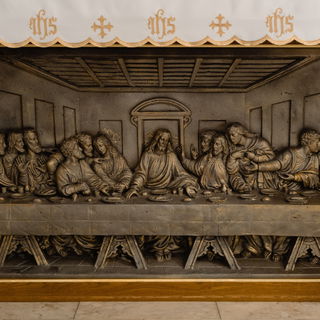- Calendar
- Calendar 2026
- February
- Ash Wednesday
Ash Wednesday
Ash Wednesday is observed 46 days before Easter Sunday, and it signals the beginning of the forty days of Lent period. Also known as Day of Ashes, Catholics and Christians celebrate this day by focusing on prayer and penance. It is not a public holiday, and businesses run as usual.
What is Ash Wednesday?
The date is dependant on the cycles of the moon, and it marks the start of Lent, a time for people to focus on repentance, fasting and reflection on their sins, as well as a time for people to let go of their indulgences. This is not observed on Sundays. Its significance lies on the period of time that Christ had to spend in the desert, having his fast tempted by Satan. Thus, people are meant to reflect on what that struggle meant for Jesus Christ, and try to practice it themselves in a ritual of the purification of the self.
What do the ashes represent?
The ashes used on Ash Wednesday services often come from the burnt palm branches of the previous year’s Palm Sunday.
The ashes meaning is that of death and repentance, and the people who receive the ash anointment are those who regret their sins and want to make their heart purer.
When did Ash Wednesday start?
The origins of the Day of Ashes can be traced back to apostolic times when it had nothing to do with Easter. It is said that officially the first practice of this day took place in the year of 325 CE, in the First Council of Nicaea. It was a day reserved for baptisms, but also for sinners to commit penance.
In those times, the practice of fasting used to be quite extreme. Repentants were only allowed one meal a day, in the evenings, and this meal could not include anything considered, at the time, extravagant such as meat or even eggs. In modern times, fasting rules are laxer, and people usually only commit to one Friday without meat per week.
Similarly, in Rome, repentants would begin publicly repenting for their sins on the first day of Lent. They were sprinkled with ashes and not allowed to mingle with Christians until their penance period was finished. This practice ended between the 8th and 10th centuries when ashes were sprinkled on the heads of the whole flock.
In modern times, a cross is drawn with ashes on the parishioners’ foreheads, symbolizing the identification of that person with Jesus Christ.
Curiously, there is no mention of Ash Wednesday or Lent in the Bible, nor does it anywhere say that this is a practice that Catholics must observe. However, several passages in The Book depict ashes as a symbol of fasting and repentance, and this is where the origins of the Day of Ashes practices are thought to lay. In America, Ash Wednesday only gained popularity among congregations in the 1970s.
Ash Wednesday Mass
During service, priests usually share a speech that focuses on reflection and penance and encourages people to confess and pray for their sins.
When anointing churchgoers with the ash cross on their forehead, priests will pronounce a variation of the words “From dust you came, and to dust you shall return.” which are meant to be humbling words, facing people with their own mortality.

Other Celebrations
-
Mar 23 Sun
-
Nov 20 Thu
-
Feb 17 Tue
-
Mar 29 Sun
-
Apr 22 Wed
-
Jun 03 Wed

Ash Wednesday - Next years
Wednesday, 10 February 2027
Wednesday, 01 March 2028
Wednesday, 14 February 2029











